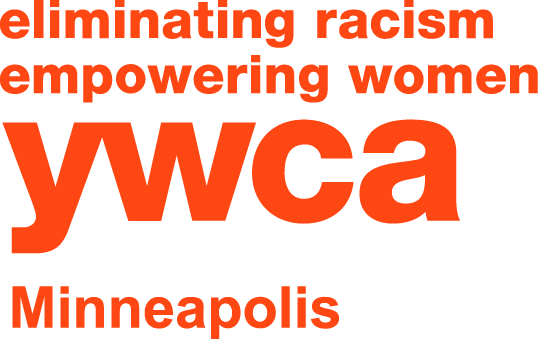2017 Legislative Session Wrap-Up
How did Minnesota children and families fare this past legislative session? Take a look at what did and did not pass this session related to YWCA Minneapolis public policy priorities. Our public policy agenda promotes access to early childhood education and afterschool youth programs for all Minnesota children regardless of race, economics or culture.
Early Childhood Education
This session was another watershed year for young children, as the Legislature passed over $100 million in new early learning investments and continued to increase the accessibility of high-quality early learning through a variety of programs.
Here’s more on what was and was not included:
- Additional families will be able to access early learning opportunities because of $20.6 million in new funding for early learning scholarships, bringing total state investment in early learning scholarships to $140 million. However, 30,000 children remain underserved. Early learning scholarship program changes include:
- New funding for early learning scholarships is directed to Pathways I scholarships (awarded directly to families), and Pathways II funding (awarded to child care providers for spaces in their programs) is capped at current levels.
- The priority list for early learning scholarships is broadened to include children who: have a parent under age 21 who is pursuing a high school degree or a course of study for a high school equivalency test; are in foster care or otherwise in need of child protective services; or have experienced homelessness in the last 24 months.
- The requirement that programs have a three- or four-star Parent Aware rating to accept an early learning scholarship is postponed to July 1, 2020, giving providers more time to enter the quality rating and improvement system.
- The implementation of several “family-friendly” provisions required by the federal Child Care and Development Block Grant (CCDBG) will increase stability for families participating in the Child Care Assistance Program (CCAP). These include:
- Eligibility redetermination every 12 months (as opposed to the current 6-month requirement).
- No change in eligibility status during the 12-month eligibility period due to changes in income (unless income exceeds 85% of the state median income).
- Fixed copays during the 12-month eligibility period.
- No reduction in the authorized number of hours during the 12-month eligibility period due to reductions or temporary changes in work hours.
- Education added as an approved Transition Year activity, creating continuity for parents in school transitioning from MFIP (Minnesota Family Investment Program) or DWP (Divisionary Work Program) to BSF (Basic Sliding Fee) child care assistance.
- Extended eligibility for three months for families exiting the program due to changes in work or education status.
- Unfortunately, a number of other improvements to CCAP were not passed this session. These include:
- No increase in CCAP provider reimbursement rates. The provider reimbursement rate has only been raised twice in the last 14 years and does not match the current market rate. When reimbursement rates don’t keep up with the rising cost of providing child care, low-income families are effectively shut out of child care choices.
- No increase in funding for BSF Child Care Assistance, resulting in fewer families served and a growing wait list that currently includes nearly 5,000 families across the state.
- No provisions designed to assist families experiencing homelessness to access CCAP.
- No additional funding for the portability pool, which helps families moving from a county where they are receiving CCAP to a county where there is a wait list.
Minnesota families will be able to better afford child care because of the $35.8 million expansion of the Child and Dependent Care Tax Credit.YWCA Minneapolis received an increase in grant funding through the Department of Employment and Economic Development for a total of $525,000 each year for the next two years. This funding will allow YWCA Minneapolis to continue to expand the Early Childhood Teacher Development Program, a high-quality training program for low-income individuals to earn a Child Development Associate (CDA) credential and have a career path in early childhood education.
Youth Development
Unfortunately, this session did not see many advancements in the area of youth policy.The establishment of a competitive grant program to fund afterschool and summertime youth programming and prioritize low-income youth did not pass.Additional funding for the YIP (Youth Intervention Programs) grant, which funds YWCA Minneapolis' Girls RAP (Resolution and Prevention) program, was not passed. However, the current funding level remains.
Racial Equity
Last year, the Legislature approved $35 million in one-time funding to address the state’s racial disparities. This session, with the emphasis on cutting taxes, keeping spending increases small and tightening many government agencies’ budgets, there was no funding allocated specifically to racial equity.The People of Color and Indigenous (POCI) Caucus formed this session to bring attention to the state’s racial disparities and to focus legislative efforts on racial equity by fighting legislation that would hurt the rights of people of color and supporting legislation that would improve opportunities for people of color. The POCI Caucus introduced the Enhance Minnesota Legislative Package, a package of equity bills that cover education access, healthy families, economic opportunities and civil rights for all, many of which did not get far this session.
Some of the racial equity provisions that gained more attention this session include the following:
- Legislation to increase penalties for protestors – which would disproportionately harm Minnesota communities of color and infringe on the First Amendment rights of all Minnesotans – did not pass.
- A provision that essentially bars undocumented immigrants from obtaining a driver’s license did pass.
- Governor Dayton vetoed a preemption bill, which would have prohibited cities from raising the minimum wage or requiring sick time.
